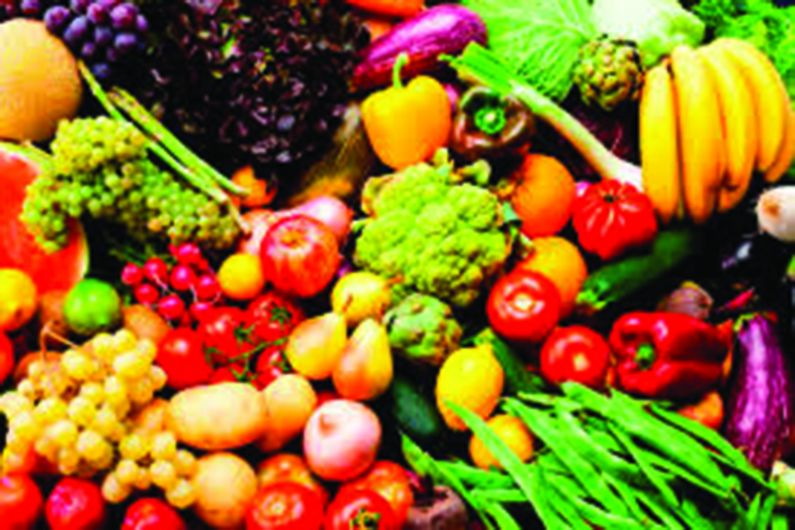Health with Rosie Shelley BA, SAC.Dip, ITEC.Dip
AT the beginning of the month I talked about nutritional developments that we’d seen in 2015, and were likely to see in the year ahead. I held off on ideas of weight loss regimes, chiming in with many others who feel that January is a time for hibernation and recuperation, but as the days start to stretch and we begin to look forward, this would be the time to take stock of our wellbeing and the trends for 2016 that work to support our goals.
It was reported recently that only 8% of us manage to see our resolutions through to the end of the year, and this is mostly because we bite off more than we can chew; we feel overwhelmed, falter and so give up. The key is to make small, manageable shifts in the way we eat, exercise and most importantly think.
One of the most valuable, and yet the simplest steps you could take would be to cut right down on sugar and replace other white carbohydrates (bread, pasta, rice) with wholegrain varieties. There’s been no escaping the growing anti-sugar movement of late, and for good reason: far more than being the driving force behind obesity and diabetes, it is an alien, inflammatory agent in the body that ages us at a cellular level, and is a major contributing factor in fatigue, thrush infections, mood swings, cardiac disease, some cancers, dementia and more. White, or refined carbs (as well as root vegetables like potatoes and parsnips) become simple sugars in the body, and create the insulin response that causes the body to lay down fat. And this will be the year when we acknowledge that ‘fruit-and-veg’ are two separate things: there’s almost nothing in fruit you can’t get from eating veg, with more fibre and without the sugar load. Stick to low sugar, high-antioxidant fruits like berries and apples, once or twice a day.
Wholegrains do provide beneficial vitamins, minerals, phytonutrients and fibre, but some more than others—bread and pasta, even in wholemeal form, are the least nourishing and most insulin-promoting of the carbs. Why not make 2016 the year you make more of brown rice, barley, buckwheat, oats, and the most nutritious of all, quinoa (simply rinse and boil for 12 minutes). Since all carbohydrates cause an insulin response, if weight loss as well as glowing health is your aim go for more vegetables (which carry all of the same nutrients as grains and some extra). This year we move away from excessive meat consumption, which contributes to the inflammation that is emerging as the number one enemy of wellbeing, and it’s all about the vegetable, but jazzed up with spices and sea vegetables (these being big trends) and different techniques such as spiralising, roasting, and alternative chips and crisps. You can radically cut down on your carb intake by using veggies as a vehicle for fillings, sauces and so on. 2016 is also the year of the pulse, and those beans and lentils carry an ideal balance of protein and phytonutrient-rich carbohydrates that makes them a winner in terms of losing weight and gaining health. Other foods that have been flying off the shelves this month include kale (with sales up 60%), blueberries, spinach, avocado, cocoa, nut butters and coconut oil. Eating real, wholefoods and cooking from scratch will, thankfully, be the order of the day.
The big scientific welcome back to dietary fats that we saw last year was a positive development, as we recognised their importance in terms of eating pleasure and every aspect of health including weight control--it’s fats and protein that fill us up rather than insulin- and so hunger-promoting carbohydrates—but in our glee we may have gone a bit overboard. Animal fats have their place but they do have an inflammatory action, while plant-based oils in avocadoes, nuts and seeds, virgin olive, rapeseed and coconut oils, as well as those in oily fish, are anti-inflammatory and boast many other virtues. Another welcome news item is the move to ban transfats, hydrogenated oils that have been have disastrous health consequences, or at least enforce stricter labelling. And hopefully we’ll see the eventual demise of the ‘lite’ and ‘fat-free’ and ‘sugar-free’ products, in which the supposedly offending ingredients have been replaced with fillers, extra sugar or sweeteners. We know now that sweeteners perpetuate a very sweet tooth, and contribute to both obesity and diabetes, partly because they promote bad gut bacteria. Sales of probiotic foods that promote the good variety, such as kefir, kimchi/sauerkraut and kombucha look likely to overtake those of sugar-filled probiotic yoghurt drinks (or you could just eat plain bio yoghurt).
The thing is to avoid anything faddy that you won’t be able to sustain. Just make sure that every meal includes protein and a little fat, with plenty of veg, and if you like a small amount of pulses or wholegrains, and the weight will come off with no need for hunger; I know just how hard it is but after a while your sugar cravings will ease (though I’m a big fan of having one sweet treat a week). Something else to consider is the new evidence that eating little and often actually keeps your insulin and so your body fat levels high – this is not how we were designed to eat. It’s been proven that the longer you go without eating, the less you’ll weigh, so plan your meals within a 12 hour framework at most, always at the same time, and never snack. I eat a substantial meal at 1pm and another at 7pm and usually nothing else and I can promise that it works.







